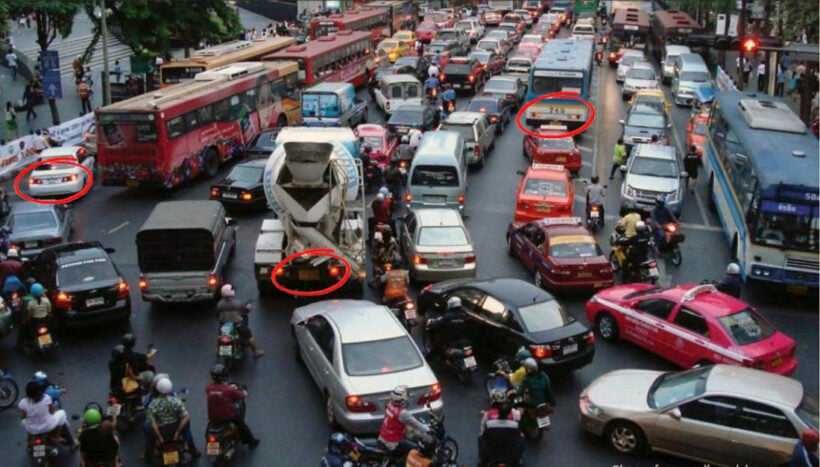Registration and traffic fine databases linked after July 1

Car owners, and presumably motorbike owners, will be unable to renew their vehicle registration or licenses if they fail to pay traffic fines after July 1.
Much discussed over the past year and now on the horizon, the Land Transport Department and Royal Thai Police intend to clamp down on people avoiding or disregarding their traffic fines.
Starting from May 24, the two authorities will test their shared software program to determine if it works as planned. The software, matching the two databases, has been discussed for years and slowly reaching the point of technological reality.
“We introduce this measure to prevent motorists from ignoring tickets issued by traffic police,” according to the Transport Department’s deputy director general Chantira Parutpat.
5.4 million tickets have been unpaid, losing a huge amount of revenue for police and the traffic fines now working as intended. Chantira expected police to conduct a serios campaign next month about the serious consequences of ignoring tickets.
“People will be able to check whether they have had tickets pending if they use an app provided by police,” she pointed out.
According to her, motorists will be asked to pay all fines if they want to renew their car-registration licenses. Renewal is needed every year.
“If they don’t pay fines, we won’t approve the renewal.”
Police’s deputy spokesman Pol Colonel Krissana Pattanacharoen said police and the Land Transport Department had already linked their database for the implementation of this measure.
SOURCE: The Nation
Latest Thailand News
Follow The Thaiger on Google News:


























